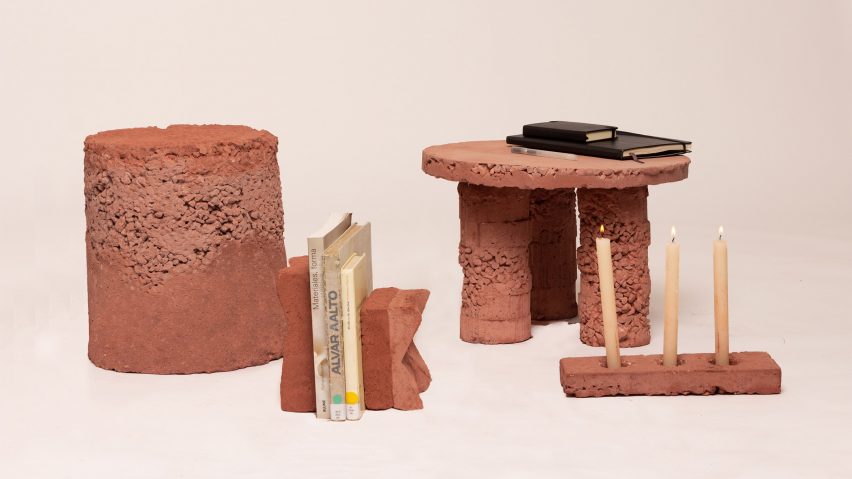
Ten product design projects by Istituto Europeo di Design
Dezeen School Shows: a project demonstrating iridescent colours and textural finishes for steel is included in this school show by Istituto Europeo di Design.
Also included is a piece of furniture that stores and displays bicycles as an alternative to outdoor storage, and a range of homewares – including bookends, side tables and candle stick holders – made from waste bricks, concrete, tiles and other reclaimed materials.
Istituto Europeo di Design (IED)
Institution: Istituto Europeo di Design (IED)
School: Design School
Course: BA in Product Design
Tutors: Federica Bosoni (IED Milano), Raffaella Perrone and Sebastian Alberdi (IED Barcelona), Alice Mela (IED Torino), Marika Aakesson (IED Roma) and Beatriz Amann (IED Madrid)
School statement:
"The principle of human-centred design is challenged by a new paradigm in which, from the centre of the world, the human becomes one among multiple components of an ecosystem.
"Istituto Europeo di Design sees design as an opportunity to reflect on and operate within this ecosystem.
"Humans, nature and technology are the components of this ecosystem and their multiple interactions generate the fields of investigation of the design of the future.
"From objects to services, from vehicles to mobility, the transition is immaterial and unstoppable.
"As a design school, we question the role that design can play in embracing this complexity, in regenerating lost connections and in creating new ones.
"The following selection of projects exemplifies IED's vision for seeking solutions that will have a positive impact on our society, especially on our environment, in line with the philosophy that underpins the school's brand new course, the Master of Arts Courses 'DesignXCommons'."
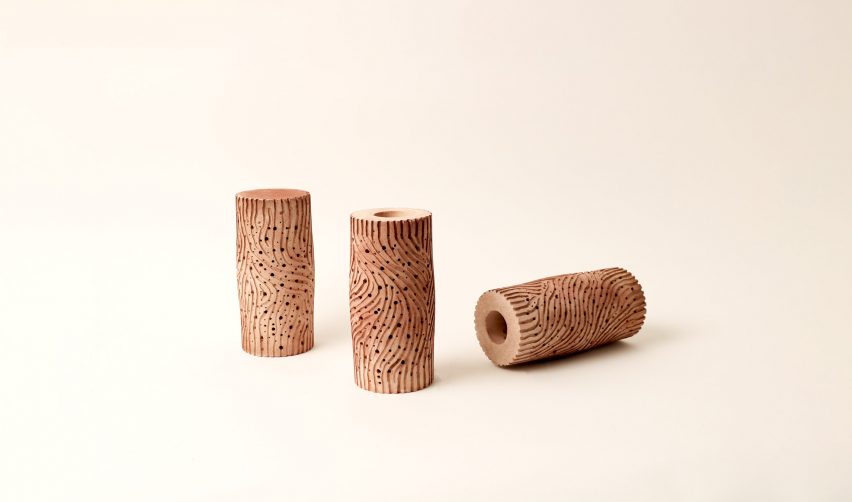
Plastic Nostrum by Mina Barchi
"Plastic Nostrum is a filter system for microplastic-contaminated marine waters, inspired by terracotta.
"It consists of two combinable and stackable modules (called Terrákos) made either traditionally by hand or through ceramic 3D printing, which contain Neptune balls – fibre balls made from the decomposition of marine Posidonia plants that act as a fishing net, trapping plastic.
"The shape of the grooves, which vary according to the technique used to produce the pieces, add a sense of beauty and facilitate the movement of the water."
Student: Mina Barchi
Course: Bachelor of Arts in Product Design – IED Barcelona
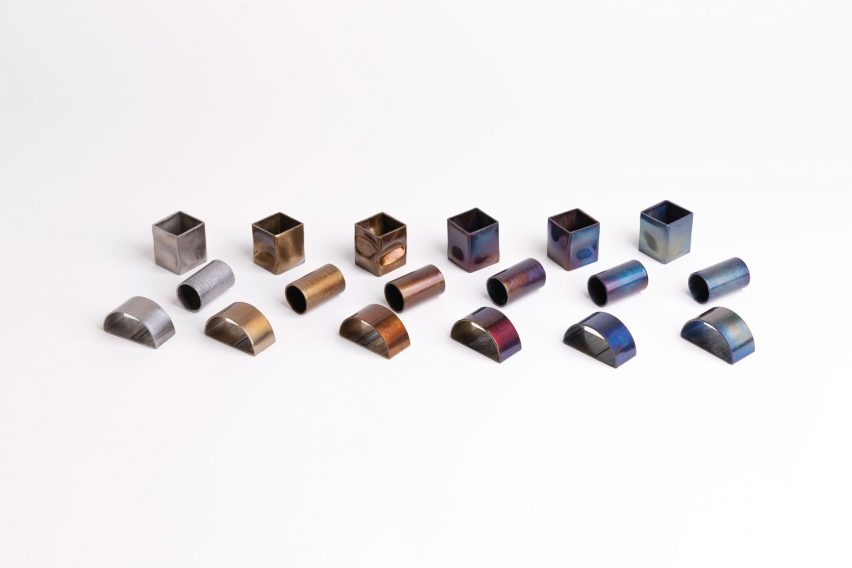
Noble by Alysha Sarah Vergis
"Noble is a colour palette displaying the six colours of tempered steel – three in warm tones and three in cool tones – with three different textures per colour: one polished, one distorted and one textured surface.
"When steel is normally used in products, it is either used in its natural form or covered with a coat of paint if another colour is desired.
"This palette strives to exhibit the untapped colour possibilities that exist in steel, as well as its natural ability to produce iridescent colours.
"The project aims to inspire designers to explore more humble materials, demonstrating that there is nothing more noble than sustainable design choices for the sake of biodiversity and the planet.'
Student: Alysha Sarah Vergis
Course: Bachelor of Arts in Product Design – IED Barcelona
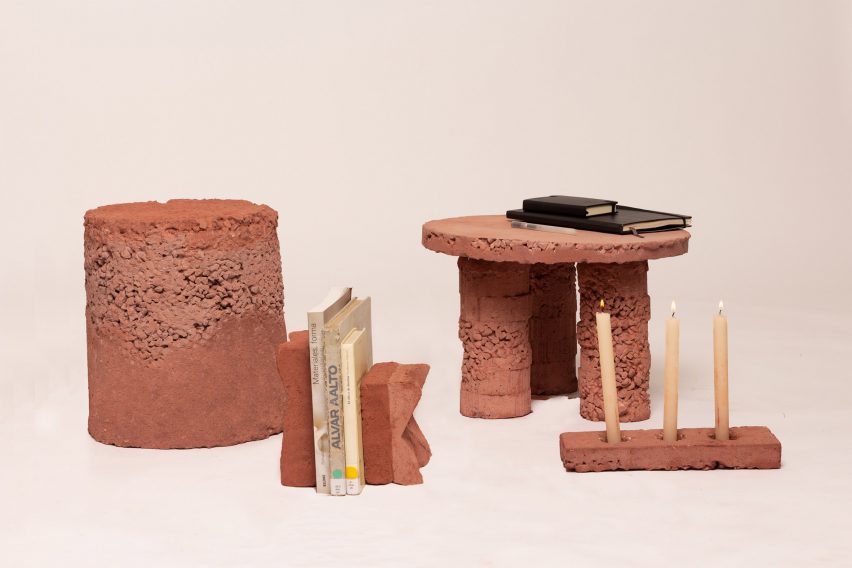
Rojo Oxidado by Natalia Sánchez
"The construction industry is searching for new ways to be more circular, reducing the extraction of raw materials and making the best use of resources.
"At this juncture, Natalia Sánchez presents her project, Rojo Oxidado, as part of the solution.
"By collecting and treating construction and demolition waste (bricks, stones, tiles, concrete, etc.), she transforms them into functional furniture giving a second life to these materials.
"Sánchez carefully explores different research and experimentation techniques with these wastes, such as their selection, classification and transformation, to generate the new material that will give rise to the recycled furniture."
Student: Natalia Sánchez
Course: Bachelor of Arts in Product Design – IED Madrid
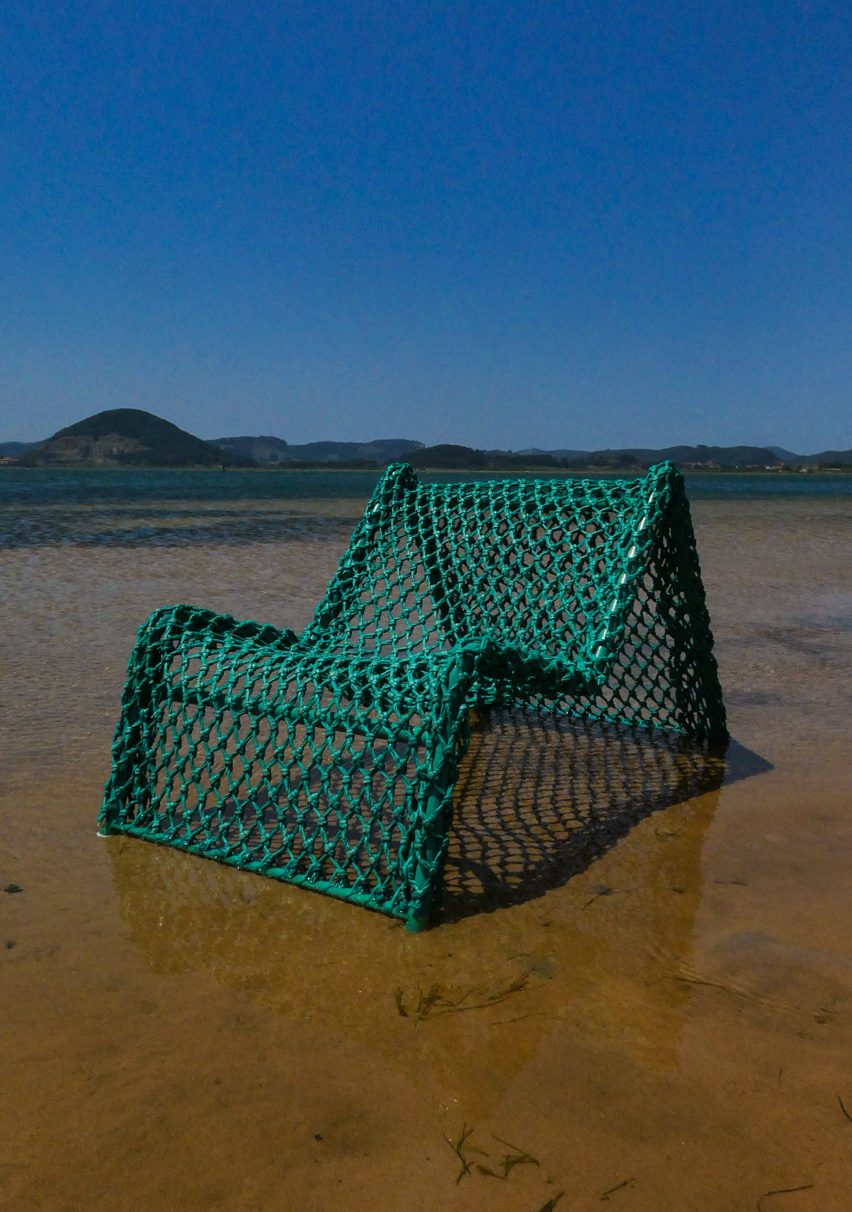
Silla Pejina by Edith Rodriguez
"The aim of this project is to find a second life for disused trawl nets that have been removed from the sea.
"The result is a deckchair with a minimal structure and a net as its main material, which takes as its starting point the fishing village of Laredo, the largest sandy area in the community of Cantabria in Spain.
"Its design is based on an ergonomic study and its shape is informed by sand dunes, which represent the beach of Laredo.
"The nets are made of nylon and keep their original colours – blue, green and purple."
Student: Edith Rodriguez
Course: Master in Product Design - IED Madrid
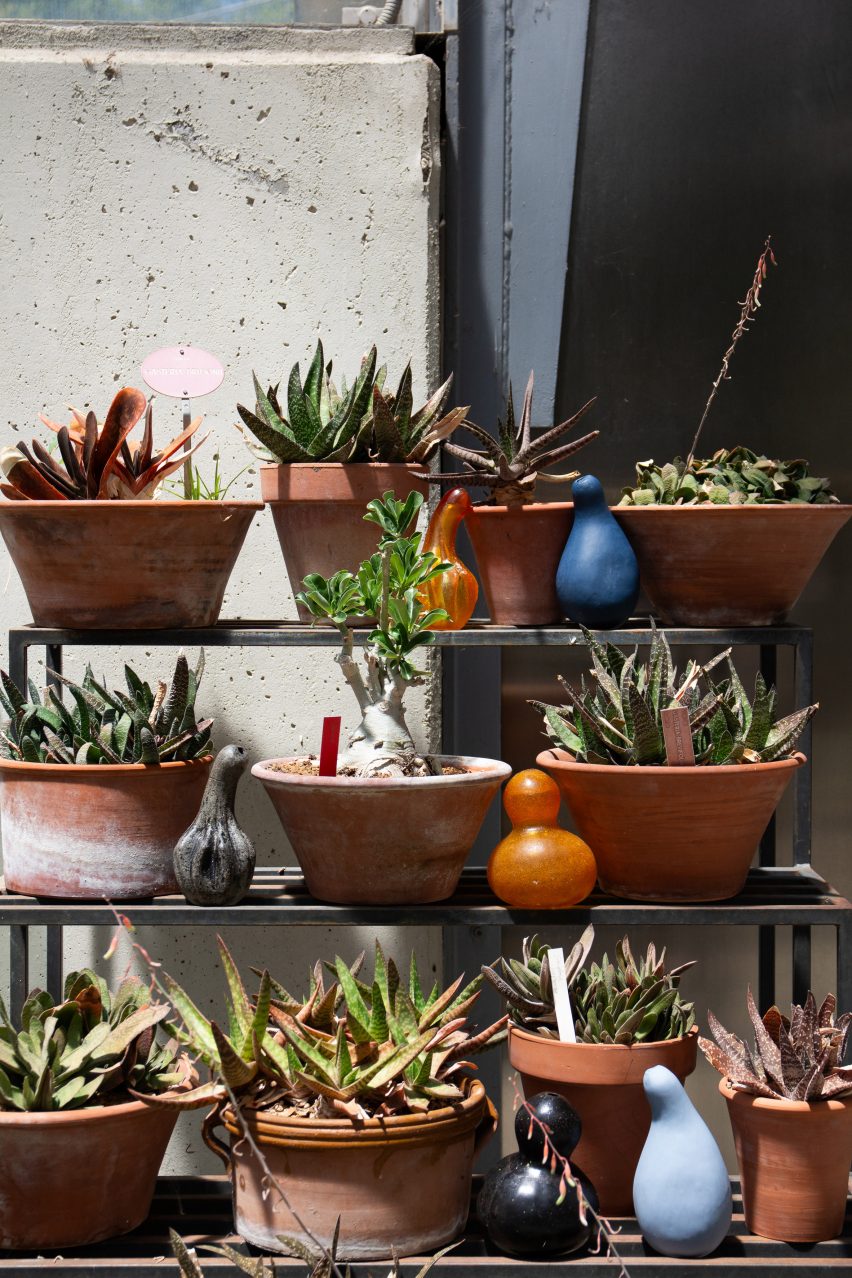
Canta & Llora by Natalia Loyevnicov
"Pieces created for the Canta & Llora project are designed to turn gardening into a ritual.
"They are watering tools that are inspired by gourds, vessels used to contain and transport water since the 12th millennium BC.
"In Spain, in particular, it was used to store water or wine during the pilgrims' journey on the Camino de Santiago.
"With the idea of promoting care and attention to the act of cultivating, especially in a context where speed is at a premium, the student proposes a series of four products made from biomaterials and ceramics."
Student: Natalia Loyevnicov
Course: Master in Product Design – IED Madrid
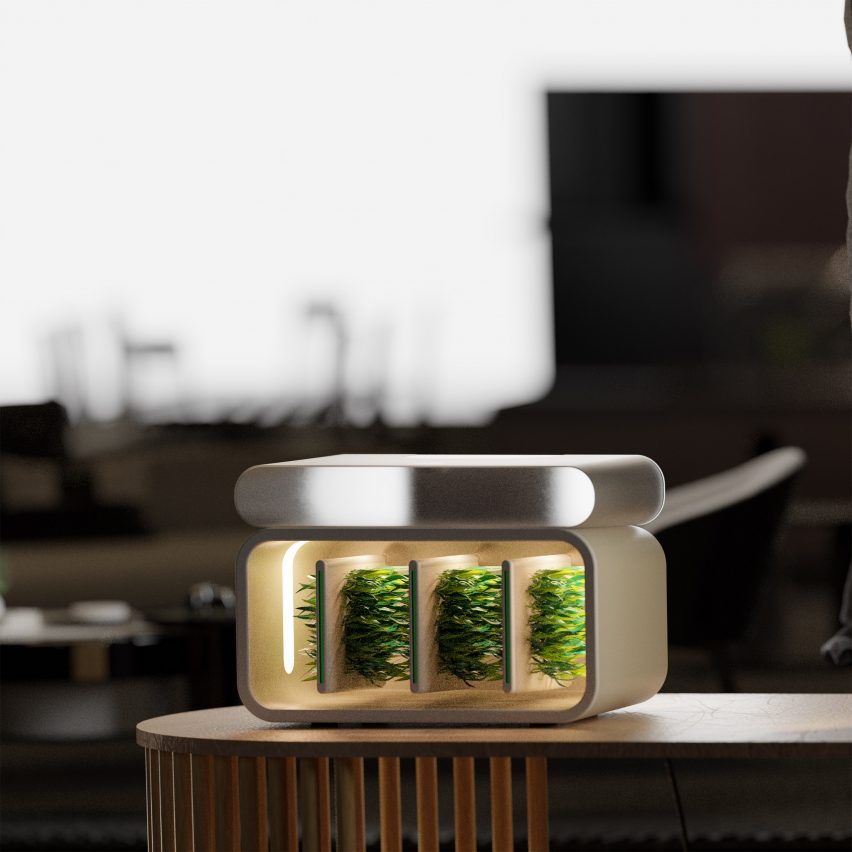
Square Greens by Eugenio Costa, Simone Centonze, Edoardo Graci and Valeria Cattoni
"Students imagined and created a new way to produce and consume fresh food – the Square Greens start-up was designed to be scalable.
"The ultimate goal is to train a new generation of prosumers capable of self-producing their personal food needs – this would lead to minimising waste.
"We set out to create a new type of household tool, as simple as a square and as small as a microwave, that could replace much less healthy appliances.
"The end result is a minimalistic yet high-performance greenhouse that can produce three full meals in just four days."
Students: Eugenio Costa, Simone Centonze, Edoardo Graci and Valeria Cattoni
Course: Bachelor Degree in Product Design – IED Milano
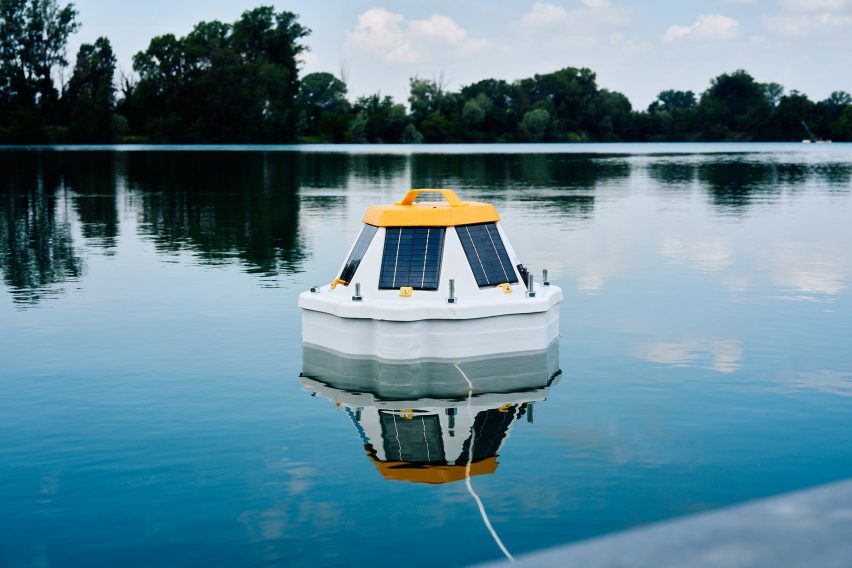
Jelter by Caterina Favella, Rebecca Raho and Emanuela Tarasco
"Jelter is a startup that was born from the need to address one of the most important contemporary problems: microplastics.
"The name comes from the union of the words jellyfish and filter.
"It consists of a buoy system that collects microplastics from marine waters, designed to be self-sufficient and sustainable, using a filter and an electronic system."
Students: Caterina Favella, Rebecca Raho and Emanuela Tarasco
Course: Bachelor Degree in Product Design – IED Milano
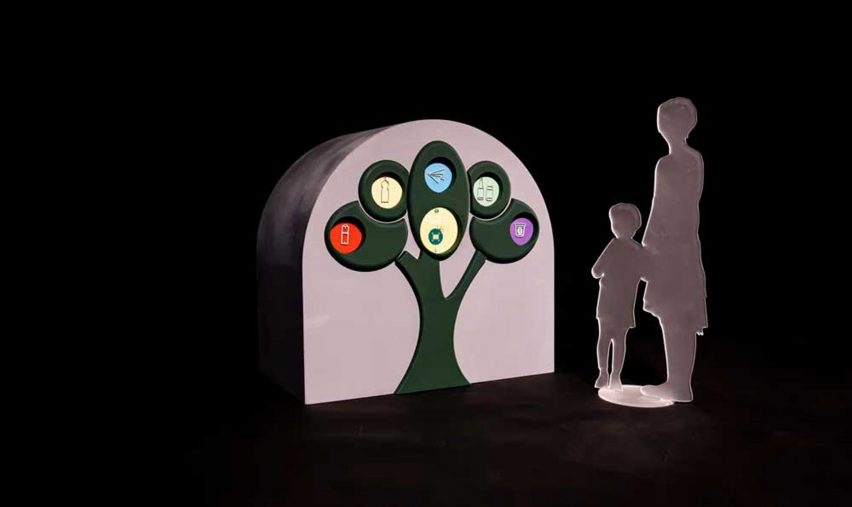
Group project: Piantala
"Piantala proposes large, interactive public bins that invite citizens of all ages to learn more about the circular economy, starting with the importance of recycling.
"The user goes to a bin and once the type of waste to be disposed of is selected, the corresponding hole will automatically open and remain open until a command has been given by the user.
"Every time waste is disposed of, the user's digital flower grows.
"The number of uses determines the development and growth of the plant, resulting in an interactive game: five uses for a seed, ten uses for a seedling and 15 uses for a complete flower.
"Once ten flowers have been obtained (150 uses in total), the user will be able to receive a hypothetical prize: for example, giving his or her name to a new tree planted by the municipality in one of Rome's green areas.
"Thus, they will have contributed not only to proper waste disposal but also to the environmental upgrading of the city."
Students: Martina Scimia, Flavia Colonnelli, Veronica Giallatini, Alice Ecossi, Elisa Luzi, Francesco De Piano and Alberto Argente Boni
Course: Bachelor Degree in Product Design – IED Roma
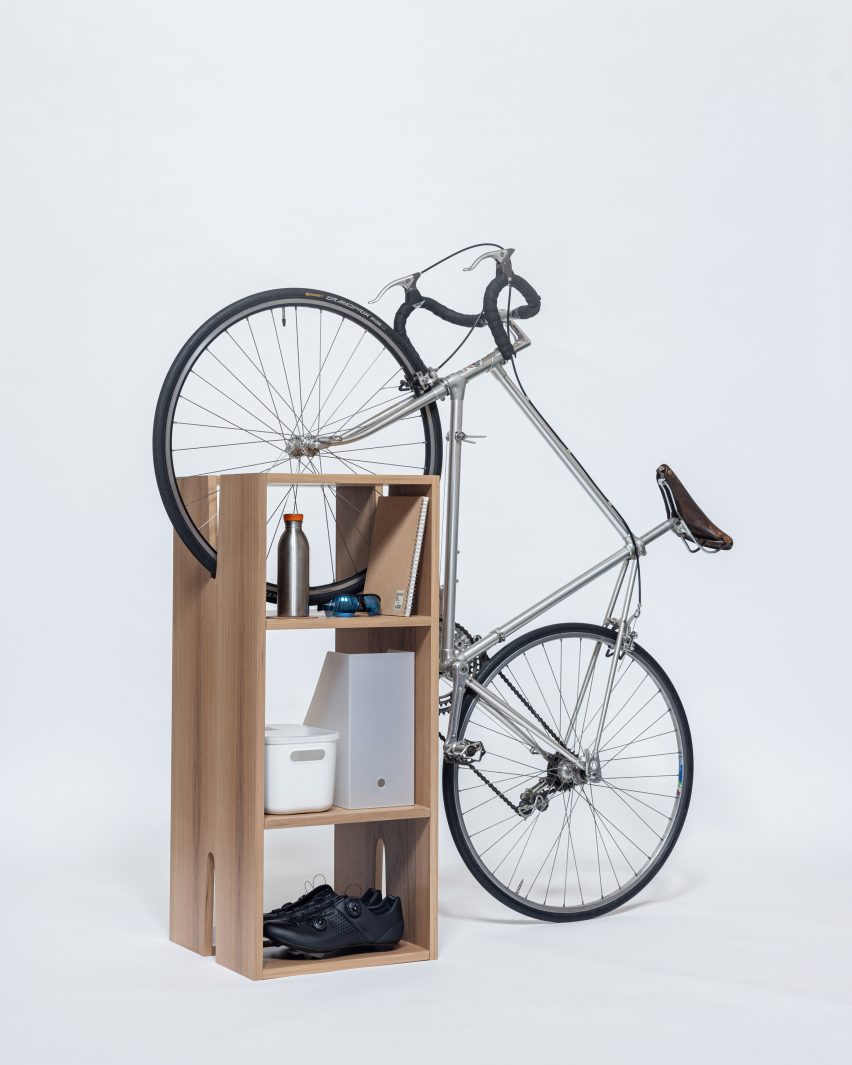
Blank Spaces by Massimo Piovano
"Blank Spaces is a project that responds to a request by lifestyle brand Muji to develop a furniture product for young tenants in Italy that considers the increase in bicycle use, as well as the rise in bicycle theft.
"The piece of furniture offers an efficient storage solution for bicycles in confined spaces, which displays the vehicle while optimising space and creating coherence between indoor and outdoor spaces."
"The product is available in two veneer variants, walnut or oak."
Student: Massimo Piovano
Course: Bachelor Degree in Product Design – IED Torino
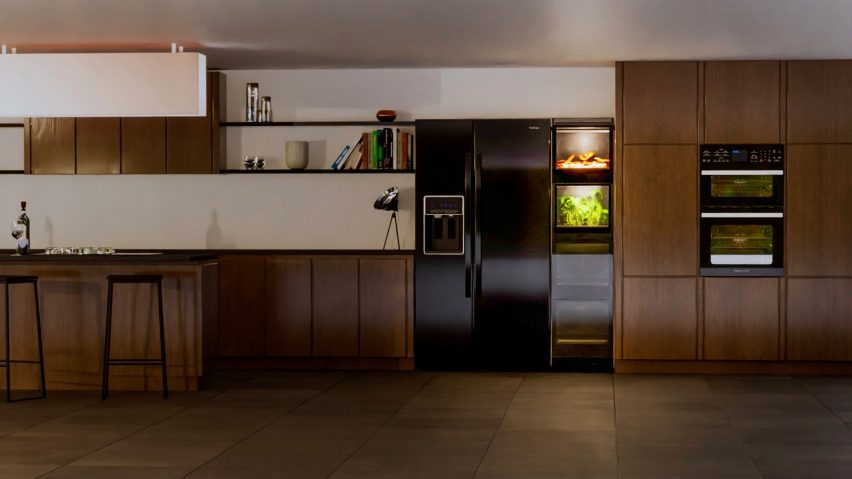
Demetra by Alessandro Pittau, Federico Martis and Simona Vacca e Davide Angioni
"Demetra is a home cultivation system that offers an innovative solution for producing fresh, healthy food at home, designed for kitchen appliance manufacturer Haier Europe.
"The product meets the requirements of domestic space, low energy consumption, ease of use and integration with smart home systems.
"The project was designed by a multidisciplinary team – product design students worked on product development, analysing the technical, functional and aesthetic features of the growing system, and media design students developed the interaction and application parts, designing the control, monitoring and management of the product via a digital platform.
"The aim of the project is to incorporate the cultivation of plant foodstuffs inside the home, taking advantage of available technologies that ensure a conscious user experience, reducing the problems associated with indoor cultivation."
Student: Alessandro Pittau and Federico Martis (product design) and Simona Vacca e Davide Angioni (media design)
Course: Bachelor Degree in Product Design and Media Design – IED Cagliari
Partnership content
This school show is a partnership between Dezeen and the Istituto Europeo di Design. Find out more about Dezeen partnership content here.